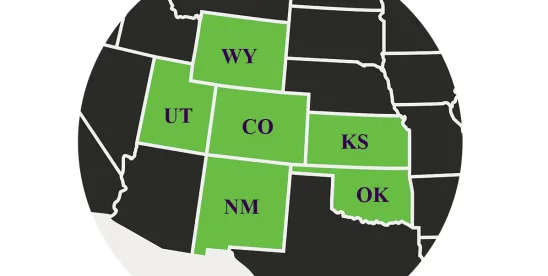On July 26, 2021, the U.S. Court of Appeals for the Tenth Circuit affirmed the decision of the U.S. District Court for the District of Colorado in favor of defendants Great-West Capital Management, LLC and Great-West Life & Annuity Insurance Co. (together, Great-West) in a Section 36(b) excessive fee case.
On August 7, 2020, after an 11-day bench trial, the District Court issued a judgment in favor of Great-West, holding that the plaintiffs failed to prove that Great-West breached its fiduciary duties under Section 36(b) of the Investment Company Act of 1940 by charging excessive fees. Citing, among other things, that the testimony of the plaintiffs’ four fact witnesses had limited probative value and that plaintiffs’ sole expert witness was non-credible, the District Court found that the plaintiffs failed to meet their burden of proof with respect to each of the factors prescribed in Gartenberg v. Merrill Lynch Asset Management, Inc., and the plaintiffs failed to identify any legitimate damages stemming from Great-West’s alleged breach.
On appeal, the Tenth Circuit reviewed the District Court’s factual findings for clear error, and its legal conclusions de novo. Because the District Court ruled in favor of Great-West on each Gartenberg factor, and because, as the Tenth Circuit stated, “no single factor is dispositive” of excessive fees, plaintiffs had the burden to convince the Court that the District Court erred with respect to its assessment of multiple Gartenberg factors. The Tenth Circuit found that the District Court did nor err on any factor, stating that because the “record is so flush with support for the district court’s factual findings” the plaintiffs were “left with little recourse beyond relitigating facts decided in district court.” The Tenth Circuit noted that the plaintiffs also failed to satisfy their burden under Section 36(b), as they did not present evidence to establish an outer bound for a fee that may be bargained for at arm’s length or that Great-West’s fees were beyond that outer bound.
In its opinion, the Tenth Circuit emphasized the importance of the sixth Gartenberg factor—“the level of expertise, conscientiousness, independence, and information with which the board acts”—stating that prior judicial treatment of this factor, including by the U.S. Supreme Court in Jones v. Harris Associates, L.P., and its “unique basis in the statutory text” suggest that this factor is of prime importance in the consideration of Section 36(b) cases. The Tenth Circuit discussed at length the contract review process undertaken by the board of the Great-West funds, noting testimony that the board was highly engaged in the process and that the board’s process followed best practices recommended by industry authorities. The Tenth Circuit noted that the board’s independent members were represented by outside legal counsel who advised them regarding the information they should consider, whether the information received from Great-West was sufficient for them to make an informed decision and how they should apply the Gartenberg factors in analyzing that information. The Tenth Circuit further noted that the independent board members asked counsel to request additional information from Great-West regarding certain funds’ fees and expenses. The Tenth Circuit cited the District Court’s findings that the board engaged in a “robust push and pull process” with Great-West, closely scrutinizing the fees Great-West charged to the funds, which resulted in “numerous fee reductions,” and that the board members were independent and well-qualified. Accordingly, the Tenth Circuit concluded that the board’s decision to approve the funds’ fees should be granted substantial deference.
The Tenth Circuit’s opinion was issued under the caption Obeslo, et al. v. Great-Western Life & Annuity, et al. (No. 20-1310).






 />i
/>i

